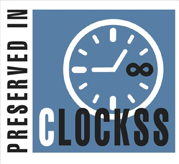Effects of 6 months of permanence in an early intervention program on the developmental level of children 18-42 months of age in poverty: cohort study
Miguel Á. Villasís-Keever, Unidad de Investigación en Análisis y Síntesis de la Evidencia, Hospital de Pediatría Centro Médico Nacional Siglo XXI, Instituto Mexicano del Seguro Social. Mexico City, Mexico
Jesús H. Trujillo-Flores, Dirección de Primera Infancia en la Secretaría de Educación de Nuevo León, Monterrey, Nuevo León, México
Angélica Ocaña-Zavaleta, Jefatura de Departamento de capacitación de Estancias Infantiles, Sistema Nacional para el Desarrollo Integral de la Familia, Mexico City, Mexico
Perla Ma. Ortega-Lomelín, Coordinación de los Centros de Atención Infantil Desarrollo Integral de la Familia Baja California, Mexicali, B.C., Mexico
Christian A. Delaflor-Wagner, Investigación Biomédica, Centro Médico Nacional 20 de Noviembre, Instituto de Servicios y Seguridad Social para los Trabajadores del Estado, Mexico City, Mexico
Alejandro I. Soto-Briseño, Unidad de Investigación Médica en Epidemiología Clínica. Unidad Médica de Alta Especialidad del Centro Médico Nacional Siglo XXI, Mexico City, Mexico
Laura A. Hernández-Trejo, Department of Clinical and Health Psychology Coordination, Facultad de Psicología, Universidad Nacional Autónoma de México, Mexico City, Mexico
José A. García-Aranda, Department of Gastroenterology, Hospital Infantil de México Federico Gómez, Mexico City, Mexico
Daniel Aceves-Villagrán, Centro Nacional para la Atención de la Salud y la Adolescencia, Mexico City, Mexico
Hortensia Reyes-Morales, Department of Gastroenterology, Hospital Infantil de México, Mexico City, Mexico
Antonio Rizzoli-Córdoba, Servicio de Pediatría del Desarrollo y la Conducta, Hospital Infantil de México Federico Gómez, Mexico City, Mexico
Background: The Child Care Facilities Program (PEI, for its Spanish acronym) in Mexico targets parents of children aged 1-3 years living in poverty, providing education and care strategies 5 days a week. This study aimed to evaluate the impact of a 6-month stay in childcare centers on the developmental levels of children under 4 years old. Methods: A longitudinal, before-and-after study was conducted. Children aged 12-42 months enrolled in the PEI were included in the study. All participants remained in the program for 6 months from the first measurement. The overall and area-specific developmental levels were assessed using the Early Childhood Development Assessment (EDI, for its Spanish acronym) test. The percentages of developmental levels (normal, delayed, and at risk of delay) were compared between the baseline and 6-month assessments using the McNemar test. Results: The study included 1835 children, of whom 52% were male. The age distribution was as follows: 28.1% were 12-24 months old, 48.4% were 25-36 months old, and 23.5% were 37-42 months old. At baseline, 80.5% (n = 1,476) of the children were classified as having normal overall development, 16% had developmental delay, and 3.5% were at risk for delay. After 6 months, the percentage of children with normal development increased to 90.1%, while those with developmental delay and those at risk for delay decreased to 8.7% and 1.2%, respectively. Similar improvements were observed across various developmental areas, except in the knowledge area. Conclusions: A 6-month stay in childcare centers is beneficial for improving the developmental levels of children under 4 years old, both overall and in motor, language, social, and cognitive areas.
Keywords: Child development. Childcare centers. Educational programs. Infants. Preschoolers.



